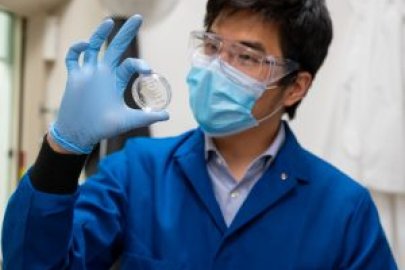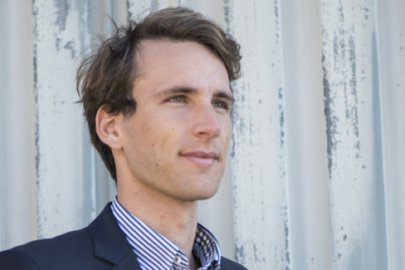
The U.S. Department of Energy’s (DOE) Lab-Embedded Entrepreneurship Program (LEEP) recruits the best and brightest minds from across the clean and renewable energy sector through a national call for a two-year funded fellowship. The primary purpose of this fellowship is to provide fellows who have early-stage clean energy startups and/or emerging technologies with the support needed to develop and transition their ideas into the market.
These entrepreneurs are embedded for a period of two years at one of four national labs where they are mentored by a lab scientist. In addition, LEEP also provides support at the local, regional, and national levels including entrepreneurship training and a networking ecosystem to eliminate the hurdles traditionally faced by early-stage cleantech startups.
LEEP’s mission is to enable the most promising cleantech entrepreneurs to develop game-changing technologies. These innovators are our clean energy future. New innovations, derived from investments in basic and applied energy research at universities and national labs, are critical to building and scaling America’s clean energy economy.
Calling all dreamers with great clean tech-related ideas who are ready to take their technologies from concept to commercialization! This program was designed for early-stage small-business owners and entrepreneurs whose startups will benefit the American economy and transform clean energy at a global level, if given the chance.
To be eligible to apply for LEEP, you must:
- Have a technical degree.*
- Have at least four or five years of technology R&D experience.*
- Be a U.S. citizen or lawful permanent resident at time of application and maintain legally authorization to work in the U.S. for the full duration of the two-year fellowship.
- Be willing to work on your project full-time and forfeit other primary employment during your fellowship.
- Not be currently enrolled in a Ph.D. or post-doctoral program at the start of the fellowship.
- Be willing and able to relocate to the metropolitan area of the national lab where you have been accepted.
- Reside in local proximity to the national lab for the full duration of the fellowship.
- Be a novice or first-time technical founder and not a serial entrepreneur.
- Apply as an individual; Group applications on behalf of a company or team are not supported.
*Specific eligibility requirements differ between the four LEEP nodes. Please refer to the specific webpage of each node for a full list of eligibility requirements and for differences therein.
LEEP's four programs or “nodes” offer participants direct access to the facilities of one of four national laboratories, along with the opportunity to work alongside scientists within those labs, while they work to develop their technological startups.
Participants receive funding from the DOE to address innovations in the following areas:
- Advanced materials
- Improving manufacturing efficiency
- Industrial decarbonization
- Lowering building carbon and energy footprints
- Solar energy
- Quantum computing
- Energy storage and the electric grid
- Circularity (Re-X pathways; circular economy; life cycle analysis)
- Food, water, energy nexus
- Carbon dioxide removal (CDR)
- Carbon capture, utilization, and storage (CCUS)
- Other technologies that further the DOE’s mission of ensuring America’s security and prosperity by addressing its energy, environmental, and nuclear challenges.
Fellows receive:
- A paid personal living stipend for the full two-year duration of the program.
- Healthcare benefits and insurance coverage.
- A yearly travel allowance for LEEP-related purposes.
- Access to equipment and scientists at one of four national laboratories.
- Grant funding to use on collaborative R&D within the national lab where they are placed.
- Comprehensive mentoring assistance to build a sustainable business model.
- Speaking opportunities at DOE-sponsored events, including the annual LEEP Summit and LEEP Demo Day, both of which convene ecosystem partners and investors to learn about current LEEP startups and technologies.
What Are the Impacts of LEEP?
The formidable challenges of addressing climate change, sustainability, and social justice will not be solved through the deployment of existing technologies alone.
America is in critical need of new innovations that will be derived from massive U.S. investments in basic and applied energy research at universities and national energy labs. Only through the commercialization and resulting impact of these innovations will our nation be able to meet the clean energy goals identified by the Biden-Harris administration, including the achievement of a net-zero-carbon-emissions economy by 2050.
By the Numbers
LEEP has led to:

FELLOWS SUPPORTED
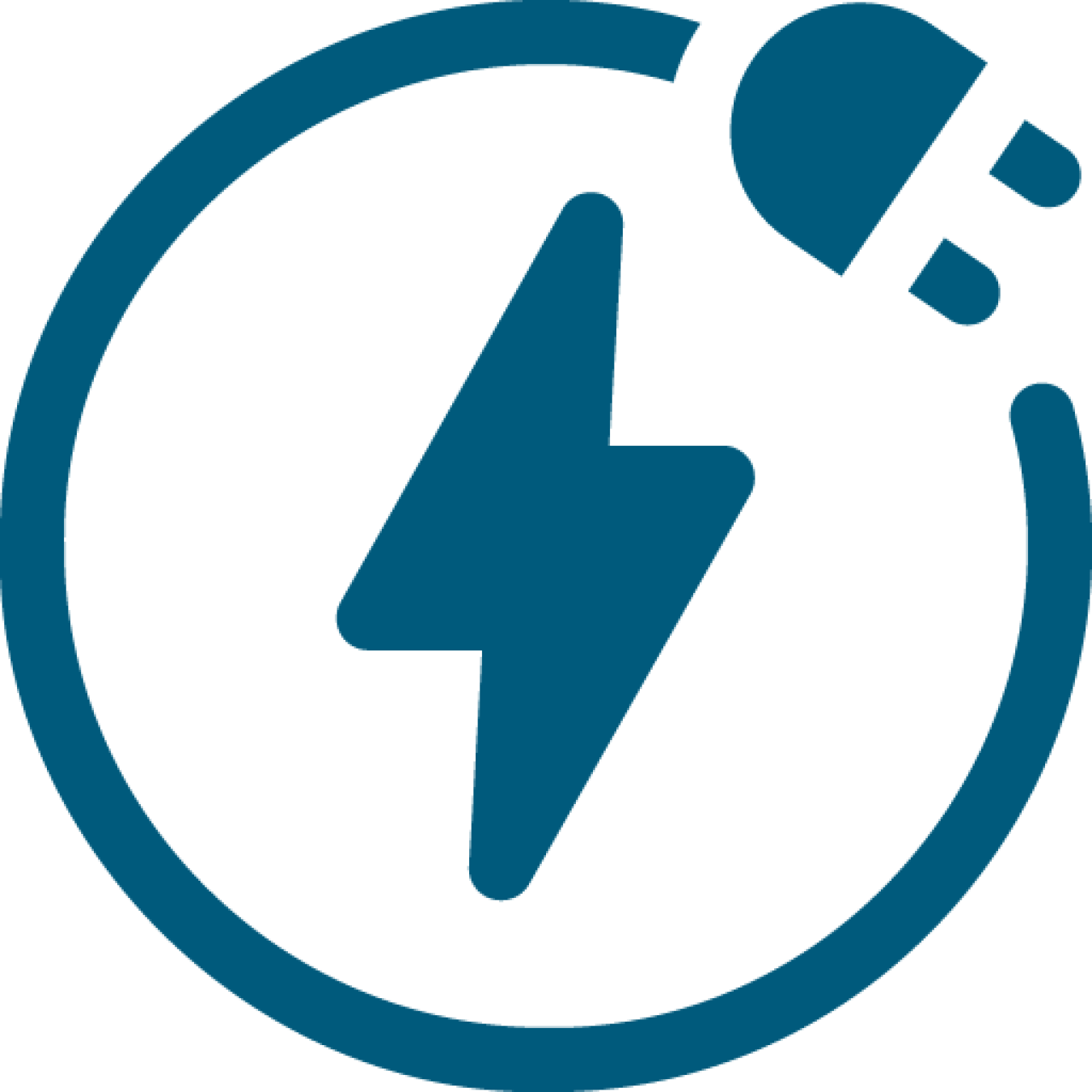
JOBS CREATED

New Businesses Started
Years of Operation
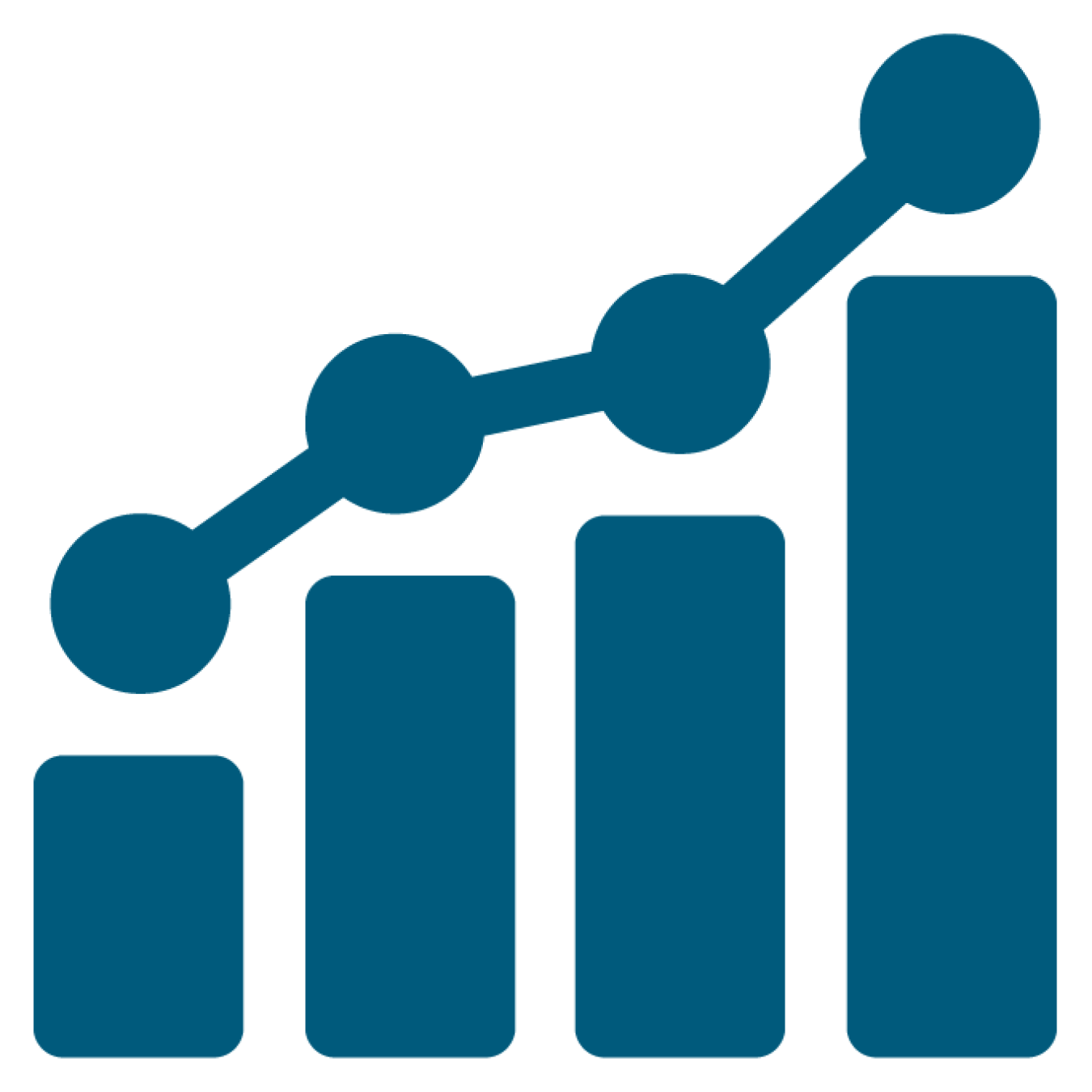
FOLLOW-ON FUNDING

STARTUP SUCCESS*
* The program defines “success” as the startup company associated with the participating fellow continuing to be in operation 10 years after completion of the program or being successfully acquired by another company in a related industry within that time.
How Do I Apply?
Participants can apply to one of the four LEEP nodes hosted at the following DOE national laboratories:
|
Argonne National Laboratory’s Chain Reaction Innovations program in Lemont, Illinois. |
Lawrence Berkeley National Laboratory’s Cyclotron Road/Activate program in Berkeley, California. |
|
National Renewable Energy Laboratory’s West Gate program, in Golden, Colorado. |
Oak Ridge National Laboratory Innovation Crossroads program in Oak Ridge, Tennessee. |
Who Are the Current Participants?
2024 Cohort
Meet the 33 innovators selected in the 2024 cohort at each node, announced July 10, 2024.
2023 Cohort


At Lawrence Berkeley National Laboratory, a new cohort of 10 scientists and engineers joined the Cyclotron Road program in 2023.


Who Has Participated and What Innovations Have They Made?
Alumni Successes
News
-
 Visit national laboratory program websites for more information and to apply.September 4, 2024
Visit national laboratory program websites for more information and to apply.September 4, 2024 -
 The webinar will present information on the LEEP Request for Information (RFI), encourage audience members to respond, and provide an opportunity to answer questions.August 27, 2024
The webinar will present information on the LEEP Request for Information (RFI), encourage audience members to respond, and provide an opportunity to answer questions.August 27, 2024 -
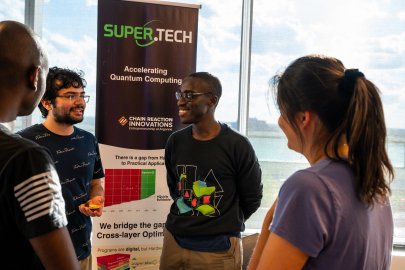 A request for information seeks to gather input regarding optimal strategies and opportunities to expand the quality, reach, impact, and equity of the Lab-Embedded Entrepreneurship Program.July 25, 2024
A request for information seeks to gather input regarding optimal strategies and opportunities to expand the quality, reach, impact, and equity of the Lab-Embedded Entrepreneurship Program.July 25, 2024 -
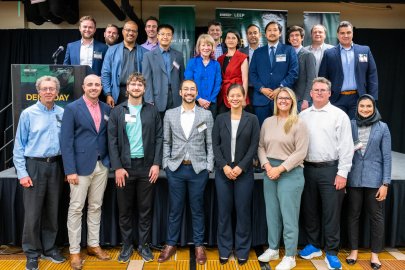 In the latest round of cohorts in its Lab-Embedded Entrepreneurship Program (LEEP), 33 innovators will be embedded across four U.S. national laboratories to work with an extensive network of mentors and experts.July 10, 2024
In the latest round of cohorts in its Lab-Embedded Entrepreneurship Program (LEEP), 33 innovators will be embedded across four U.S. national laboratories to work with an extensive network of mentors and experts.July 10, 2024 -
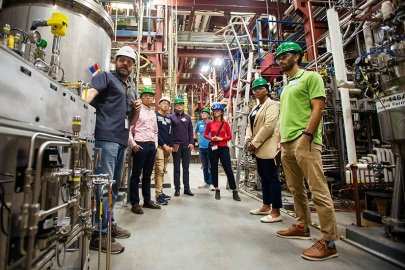 Today, the U.S. Department of Energy (DOE) announced the latest round of cohorts in its Lab-Embedded Entrepreneurship Program (LEEP).October 13, 2023
Today, the U.S. Department of Energy (DOE) announced the latest round of cohorts in its Lab-Embedded Entrepreneurship Program (LEEP).October 13, 2023 -
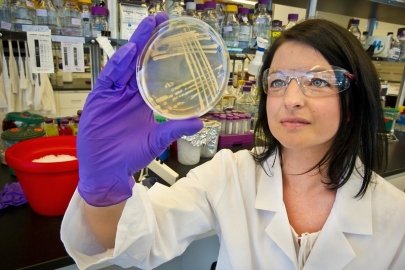 The Department of Energy’s (DOE) Lab-Embedded Entrepreneurship Program has exceeded $1 billion in follow-on funding and investments raised by participating clean energy startups since its inception in 2015.March 13, 2023
The Department of Energy’s (DOE) Lab-Embedded Entrepreneurship Program has exceeded $1 billion in follow-on funding and investments raised by participating clean energy startups since its inception in 2015.March 13, 2023 -
The U.S. Department of Energy announced the latest cohorts in its Lab-Embedded Entrepreneurship Programs.July 6, 2020
-
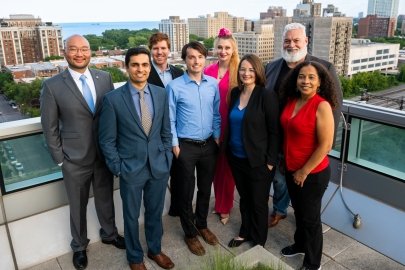 On July 12, the U.S. Department of Energy (DOE) hosted the first-ever Lab-Embedded Entrepreneurship Program Summit.August 26, 2022
On July 12, the U.S. Department of Energy (DOE) hosted the first-ever Lab-Embedded Entrepreneurship Program Summit.August 26, 2022 -
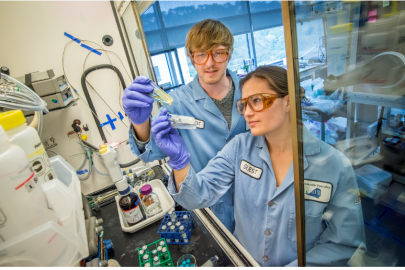 Today, the U.S. Department of Energy (DOE) announced the latest cohorts in its Lab-Embedded Entrepreneurship Program. The selected innovators will work with U.S. National Laboratories to develop next-generation technologies for a clean economy.July 21, 2022
Today, the U.S. Department of Energy (DOE) announced the latest cohorts in its Lab-Embedded Entrepreneurship Program. The selected innovators will work with U.S. National Laboratories to develop next-generation technologies for a clean economy.July 21, 2022 -
The 22 selected innovators will join an extensive network of mentors and experts at U.S. national laboratories.June 8, 2021
-
DOE announced the third cohort of innovators to join Chain Reaction Innovations, a DOE-funded entrepreneurial research and development program.May 6, 2019
-
DOE launches the latest expansion of its Lab-Embedded Entrepreneurship ProgramNovember 29, 2021
-
BTO’s selectee will be one of six science and technology innovators from across the U.S. to participate in ORNL’s research and development (R&D) to market program for entrepreneurs.June 8, 2021
-
DOE announced the opening of applications for the 2022 cohorts in its Lab-Embedded Entrepreneurship ProgramSeptember 27, 2021
Who Are the Key Supporters and Partners?
Multiple offices within and outside of DOE fund innovators in the program working on technologies critical to their missions, and the LEEP nodes strengthen ties to their local and regional ecosystems through strategic partnerships.
DOE offices that support LEEP include:
- The Office of Energy Efficiency and Renewable Energy
- Advanced Materials and Manufacturing Technologies Office (core funding office)
- Industrial Efficiency and Decarbonization Office
- Building Technologies Office
- Hydrogen and Fuel Cell Technologies Office
- Solar Energy Technologies Office
- Fossil Energy and Carbon Management
- Carbon Management Technologies
- Office of Electricity
- Energy Storage
- Grid Controls and Communications
- Office of Science
- Advanced Scientific Computing Research
- Basic Energy Sciences
- Biological and Environmental Research
- The Office of Energy Efficiency and Renewable Energy
Other key supporters and partners of LEEP:
- Activate (Cyclotron Road)
- Colorado School of Mines (West Gate)
- Tennessee Valley Authority (Innovation Crossroads)







